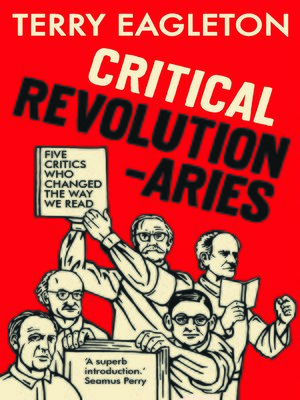
Sign up to save your library
With an OverDrive account, you can save your favorite libraries for at-a-glance information about availability. Find out more about OverDrive accounts.
Find this title in Libby, the library reading app by OverDrive.



Search for a digital library with this title
Title found at these libraries:
| Library Name | Distance |
|---|---|
| Loading... |
Terry Eagleton looks back across sixty years to an extraordinary critical milieu that transformed the study of literature
Before the First World War, traditional literary scholarship was isolated from society at large. In the years following, a younger generation of critics came to the fore. Their work represented a reaction to the impoverishment of language in a commercial, utilitarian society increasingly under the sway of film, advertising, and the popular press. For them, literary criticism was a way of diagnosing social ills and had a vital moral function to perform.
Terry Eagleton reflects on the lives and work of T. S. Eliot, I. A. Richards, William Empson, F. R. Leavis, and Raymond Williams, and explores a vital tradition of literary criticism that today is in danger of being neglected. These five critics rank among the most original and influential of modern times, and represent one of the most remarkable intellectual formations in twentieth-century Britain. This was the heyday of literary modernism, a period of change and experimentation—the bravura of which spurred on developments in critical theory.
Before the First World War, traditional literary scholarship was isolated from society at large. In the years following, a younger generation of critics came to the fore. Their work represented a reaction to the impoverishment of language in a commercial, utilitarian society increasingly under the sway of film, advertising, and the popular press. For them, literary criticism was a way of diagnosing social ills and had a vital moral function to perform.
Terry Eagleton reflects on the lives and work of T. S. Eliot, I. A. Richards, William Empson, F. R. Leavis, and Raymond Williams, and explores a vital tradition of literary criticism that today is in danger of being neglected. These five critics rank among the most original and influential of modern times, and represent one of the most remarkable intellectual formations in twentieth-century Britain. This was the heyday of literary modernism, a period of change and experimentation—the bravura of which spurred on developments in critical theory.







